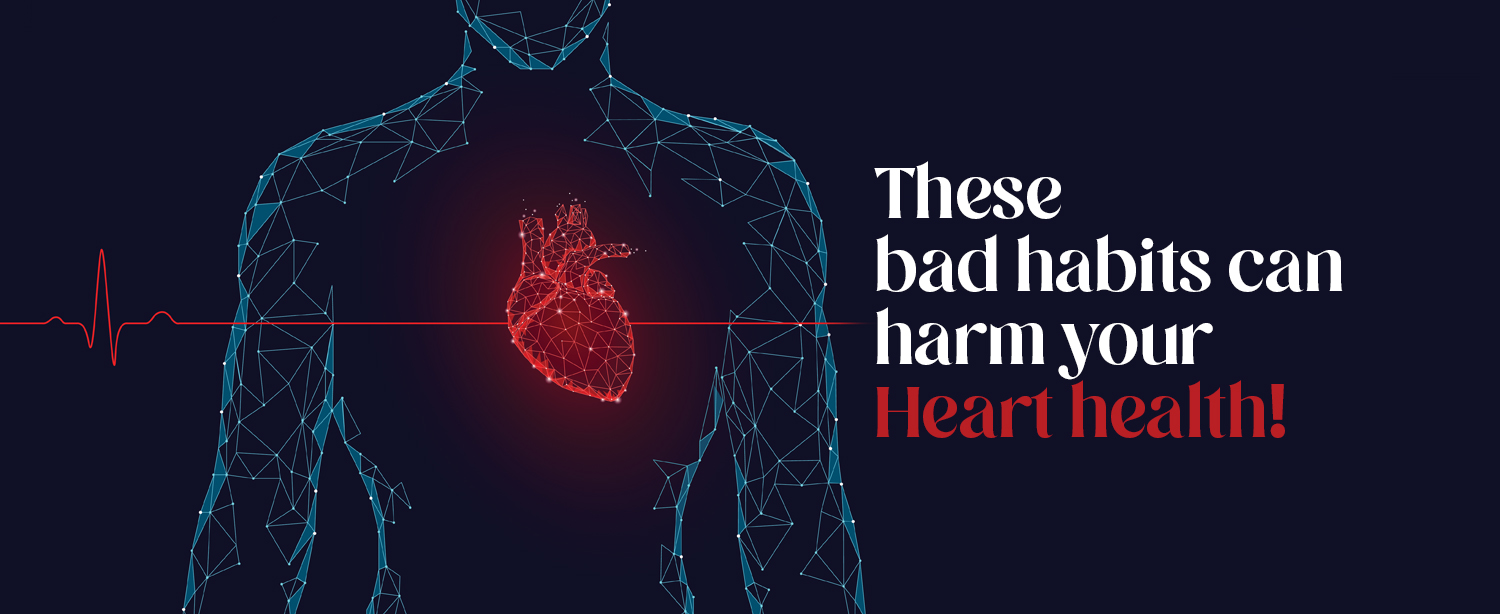India accounted for more than 28,000 deaths due to heart attacks in the last three years. Statistics suggest that there has been a 54% rise in heart attacks in India in the last decade. Cardiologists have noticed a sharp increase in sudden cardiac death in India in the past few years, with young adults being the worst sufferers. What is the reason behind these disturbing statistics?
Heart disease, which encompasses conditions like heart attack, stroke, heart failure, and irregular heart rhythm, is when your heart and blood vessels don’t function as they should (arrhythmia). Your heart works tirelessly throughout the day to circulate blood throughout your body. Even as you read this on your screen right now, it is pumping while you exercise, walk, eat, sleep, and are awake.
Apart from planning regular cardiac health checkups and knowing your family history, your actual heart health is determined by what you do in your daily life. Your everyday lifestyle choices, the food you eat, your daily activity levels have a great impact on your heart health. Your heart is always working hard for you — you too can choose to lead a heart healthy lifestyle to protect your heart.
Why is you heart health important?
The human heart is a complex organ that plays a vital role in the functioning of our body. As the primary organ, it is responsible for pumping blood to every part of our body, delivering oxygen and nutrients to our cells and organs, and removing waste products.
You cannot change some heart disease risk factors, such as your age or family history. However, better lifestyle choices at any age can avoid heart disease and reduce your risk of having a heart attack or stroke. Watch out for these poor lifestyle choices that increase your risk of heart disease and stay away from them:
- Smoking – and not just cigarettes
Every time you inhale a cigarette, you are breathing over 5,000 chemicals – many of which are harmful to your health and are carcinogens. Some people use e-cigarettes —called “vaping” which is equally harmful. Smoking damages the lining of the arteries, and may increase your risk of heart disease, high blood pressure and high cholesterol - High levels of Stress
Stress is known to increase the levels of cortisol, a hormone that can increase blood pressure and blood sugar levels, leading to inflammation and damage to the blood vessels. Chronic stress can also lead to unhealthy coping mechanisms, such as smoking, overeating, and lack of physical activity, which can increase the risk of developing heart disease. Make healthy changes to cope better with stress. - Eating an unhealthy diet
Good nutrition can go a long way in lowering your risk of heart disease. A diet that is high in saturated and trans fats, sodium, and added sugars can increase the risk of developing high blood pressure, high cholesterol, and obesity. These conditions can increase the risk of developing heart disease. Choose to eat a diet that is rich in fruits, vegetables, whole grains, and lean protein. - Leading a sedentary lifestyle
Lack of physical activity can lead to obesity, high blood pressure, and high cholesterol, all of which are risk factors for heart disease. Regular physical activity can help improve heart health by reducing inflammation, improving blood vessel function, and reducing the risk of developing other chronic conditions. Just 150 minutes per week – of moderate-intensity physical activity can help lower your heart disease risk. - Having too many drinks
Drinking too much alcohol can increase the risk of developing high blood pressure, irregular heart rhythms, and damage to the heart muscle. In addition, excessive alcohol consumption can lead to obesity, which can increase the risk of developing heart disease. It is best to avoid all forms of alcohol.
Cardiac care at Kokilaben Dhirubhai Ambani Hospital, Mumbai
Concerned about your heart health? Meet highly experienced cardiologists at our Centre for Cardiac Sciences for the prevention, diagnosis, treatment, and rehabilitation of heart disease in people across age groups. We are also equipped with cutting-edge technology, world-class infrastructure and a great team to help manage the most complex cases. Please find below our website link for further details: https://www.kokilabenhospital.com/departments/centresofexcellence/centrefor_cardiacsciences.html


